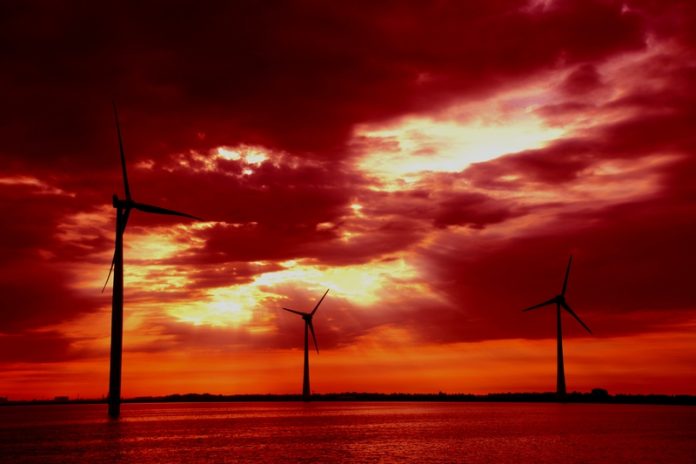We stride confidently toward a vast catastrophe. Willingly blind to the consequences of our profligate burning of fossil fuels, we speak in hushed tones, if we speak at all, of the accelerating changes in the world’s climate that will wreak havoc for humanity and many other species for centuries. We don’t want to think about climate change. Energy is a prime need and we’ll take it wherever we can get it cheaply, and put off the problems we are making for the future to that future time.
Why do we think and act this way? One principal issue is the ease with which denial of climate change permeates our society. The media often facilitates such denial by presenting arguments from both sides as if they were equally supported by evidence and knowledgeable opinion, but the sides are not equal. The evidence overwhelmingly supports that climate change is real and accelerating. But to make the story more interesting, the media often presents it as a great wrestling match, giving far too much credence to the position of the climate change denier.
People are left wondering: Is there scientific consensus on climate change? Scientists do their work by arguing and submitting a variety of hypotheses to explain observations. The hypotheses are tested and the evidence judged. Rarely do 100% of scientists agree on any single explanation. But in the case of climate change it is estimated that 97% of people with expertise in this area agree that global warming is taking place, and that humans are the principal cause. That’s about as good an agreement as we’re ever going to get. To top it off, no major scientific institution in the world disputes anthropogenic climate change.
Yet people may ask: Hasn’t the climate always been changing? The fact is that CO2 and methane in the Earth’s atmosphere are increasing faster than ever. This increase is correlated with a recent rate of warming of about 0.2°C/decade, which is 40 times higher than it was during a warming trend 10,000 years ago. CO2 is at its highest level in 600,000 years, and it has never changed so rapidly as now.
But sceptics point out that Antarctica is gaining ice, which is not exactly the truth. To understand ice in Antarctica it is necessary to recognise that there are two main forms: “land ice” that has accumulated over thousands of years on the continental land mass; and “sea ice” that forms in salt water.
The real worry about Antarctica ice is the land ice, which is melting at a high rate and contributes new water to the ocean, causing the ocean level to rise. While data may show the extent of sea ice increasing in recent years in Antarctica, data also indicate a significant acceleration of melting land ice. It is the land ice on which we must focus. Don’t be fooled by increases in sea ice, which is influenced by the input of cold meltwater coming from the land ice. Sea ice formation doesn’t affect the ocean level much, but the melting of Antarctica land ice affects it greatly.
So, if the scientific information is clear, and if the predicted consequences are so dire, then why are people neglecting to take action? Humans, like other animals, respond very well to an immediate crisis. But, despite our ability to plan and analyse, we do not respond well to crises that take a while to develop. One reason for this is that we are currently occupied by many challenges that appear more pressing. Another reason is that our ability to imagine the future is clouded by a belief that we have already experienced bad weather. When we are asked to imagine the global temperatures rising by 4°C, we recall the heat waves we have gotten through. When we are asked to imagine severe storms, we think of the bad tornados, hurricanes and typhoons we have survived. What we cannot imagine is the unrelenting heat, the increased frequency and severity of storms worldwide, and the scale of flooding or drought in the near future. We cannot imagine hordes of refugees and the absence of food and medical supplies to assist them. We are caught, according to George Marshall, in ‘Don’t Even Think About It’, having confirmation bias, “… leading people to hugely overestimate the dangers of recent events and disregard the threat posed by more distant ones that they have not experienced.”
Also impeding our ability to imagine the future is our misplaced reliance on our current economic model of continued growth. We are fully invested in this world economic framework and any threat to it being sustained must be removed rapidly. We do not see that continuing to rely on growth via unregulated industry is itself unsustainable. One way or another, by our own choice or by nature’s laws, continuing to burn fossil fuels will stop. Either we start to do it now, or we will be forced to by nature.
Our leaders are absent, and we absent ourselves from them. Kyoto, Copenhagen, and Lima demonstrate that few people are asking their governments to take strong action, and governments themselves are taking little action. Despite hopeful signs like the recent US-China trade agreement, leaders continue to focus on short term economic gains, employment, GNPs, balances of trade, etc. so that they can look good for re-election.
Climate change is the defining challenge for the next few generations. In her book ‘This Changes Everything’, Naomi Klein writes: “…the real truth we have been avoiding: climate change isn’t an “issue” to add to the list of things to worry about, next to health care and taxes. It is a civilisational wake-up call… telling us that we need an entirely new economic model and a new way of sharing this planet. Telling us we need to evolve.”
Are we listening or are we asleep?
Bruce Conard
President
BRConard Consulting, Inc.
Tel: (905) 844 8155
bconard@sympatico.ca











